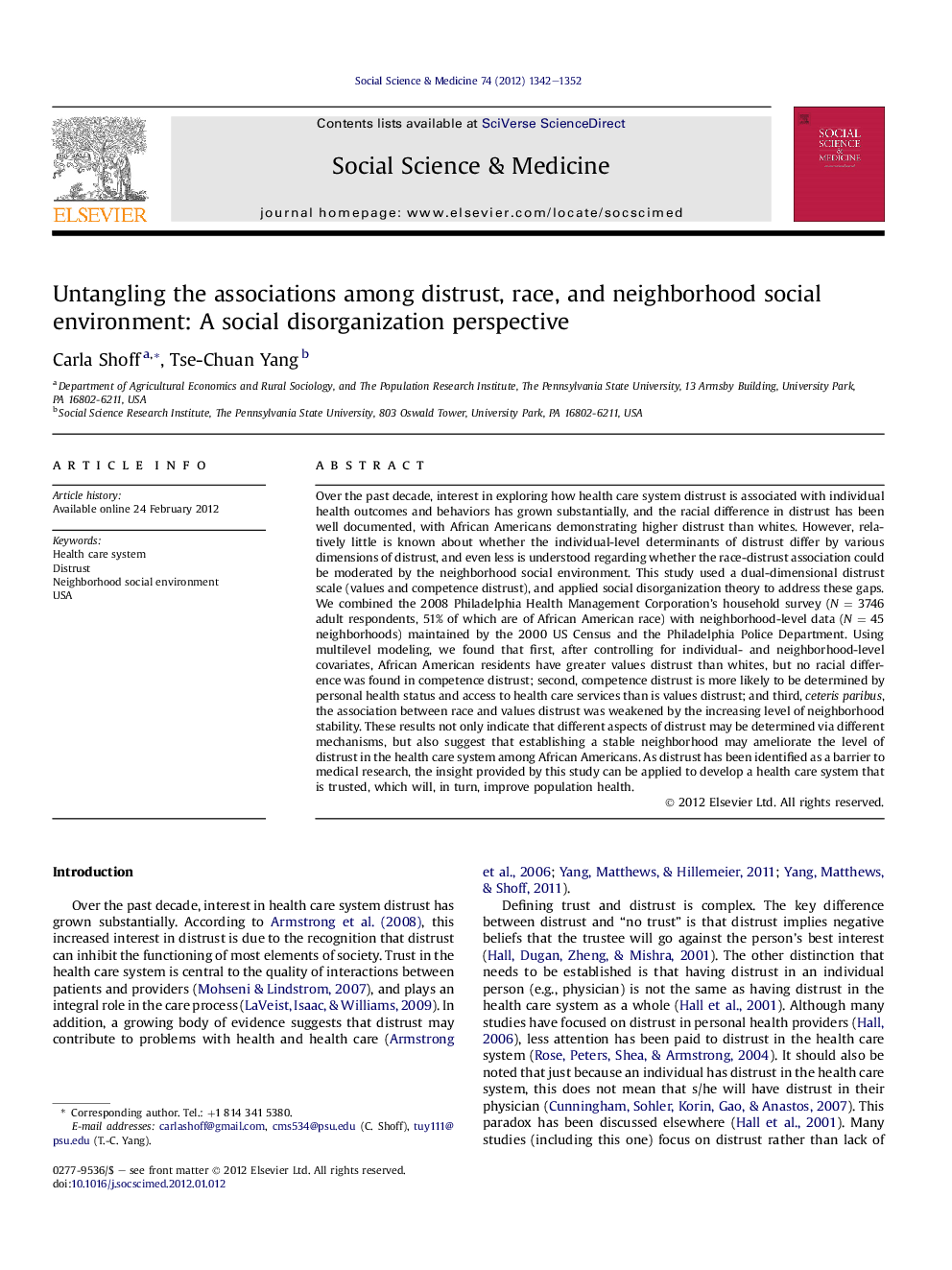| Article ID | Journal | Published Year | Pages | File Type |
|---|---|---|---|---|
| 952496 | Social Science & Medicine | 2012 | 11 Pages |
Over the past decade, interest in exploring how health care system distrust is associated with individual health outcomes and behaviors has grown substantially, and the racial difference in distrust has been well documented, with African Americans demonstrating higher distrust than whites. However, relatively little is known about whether the individual-level determinants of distrust differ by various dimensions of distrust, and even less is understood regarding whether the race-distrust association could be moderated by the neighborhood social environment. This study used a dual-dimensional distrust scale (values and competence distrust), and applied social disorganization theory to address these gaps. We combined the 2008 Philadelphia Health Management Corporation's household survey (N = 3746 adult respondents, 51% of which are of African American race) with neighborhood-level data (N = 45 neighborhoods) maintained by the 2000 US Census and the Philadelphia Police Department. Using multilevel modeling, we found that first, after controlling for individual- and neighborhood-level covariates, African American residents have greater values distrust than whites, but no racial difference was found in competence distrust; second, competence distrust is more likely to be determined by personal health status and access to health care services than is values distrust; and third, ceteris paribus, the association between race and values distrust was weakened by the increasing level of neighborhood stability. These results not only indicate that different aspects of distrust may be determined via different mechanisms, but also suggest that establishing a stable neighborhood may ameliorate the level of distrust in the health care system among African Americans. As distrust has been identified as a barrier to medical research, the insight provided by this study can be applied to develop a health care system that is trusted, which will, in turn, improve population health.
► African Americans have greater values distrust, instead of competence distrust, in the health care system than do whites. ► Both individual and neighborhood variables explain the racial disparity, but the pathways differ by dimensions of distrust. ► Competence distrust tends to be more determined by health status and access to health care services than values distrust. ► By contrast, values distrust is affected more by neighborhood variables than individual features. ► Establishing a stable and safe neighborhood may alleviate distrust in the health care system among African Americans.
